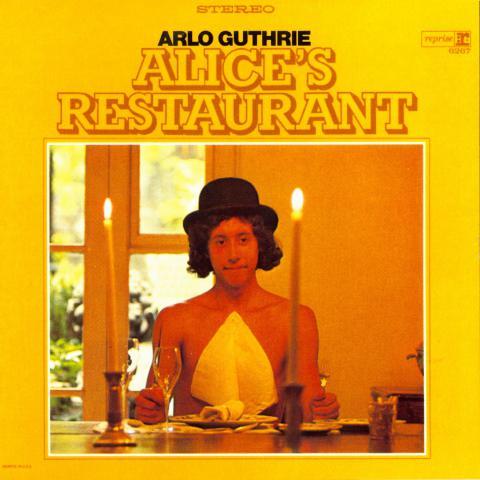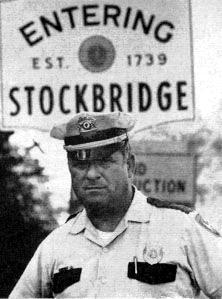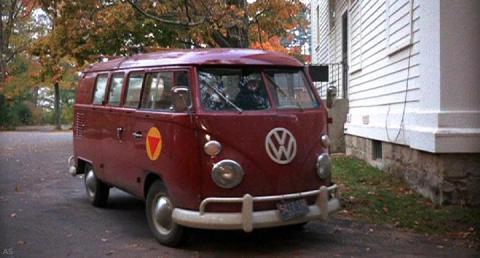


"Alice's Restaurant Massacree", commonly known as "Alice's Restaurant", is a musical monologue by singer-songwriter Arlo Guthrie, released on his 1967 debut album Alice's Restaurant. It is notable as a satirical, first-person account of 1960s counterculture, in addition to being a hit song in its own right and an inspiration for a 1969 movie of the same name. The song is one of Guthrie's most prominent works, based on a true incident from his life that began on Thanksgiving Day 1965 with a citation for littering, and ended with the refusal of the U.S. Army to draft him because of his conviction for that crime. The ironic punch line of the story is that, in the words of Guthrie, "I'm sittin' here on the Group W bench 'cause you want to know if I'm moral enough to join the Army—burn women, kids, houses and villages—after bein' a litterbug." The final part of the song is an encouragement for the listeners to sing along, to resist the draft, and to end war.
Apart from the chorus which begins and ends it, the "song" is in fact a spoken monologue, with a constantly repeated fingerstyle ragtime guitar (Piedmont style) guitar backing. It lasts 18 minutes and 34 seconds, occupying the entire A-side of the Alice's Restaurant album. The work has become Guthrie's signature song and he has periodically re-released it with updated lyrics.
Incident
In November 1965, when Guthrie was 18 years old near the end of his brief stint at Rocky Mountain College, he spent the Thanksgiving Day holiday in Great Barrington, Massachusetts, at a deconsecrated church being used as a home for two of his friends, Alice and Ray. (Alice owned a restaurant at the time, but other than being the subject of the chorus, none of the events of the song involve the restaurant.) As a favor to Alice and Ray, Guthrie and a friend (not named in the song, but identified in contemporary news reports as Richard Robbins) volunteered to take the church's large stockpile of trash to the local dump, not realizing until they arrived at the dump site that it was closed for the holiday. He proceeded to an illegal dump site in the nearby town of Stockbridge and deposited the trash there; the next day, Stockbridge chief of police William Obanhein arrested Guthrie and Robbins for littering.
The song describes to ironic effect Obanhein's frustration at the ensuing "typical case of American blind justice", in which the officer was prepared to present at trial "twenty-seven 8×10 color glossy pictures with circles and arrows and a paragraph on the back of each one explaining what each one was to be used as evidence against us", only to have the judge enter the courtroom accompanied by a seeing-eye dog. Guthrie and Robbins both plead guilty, were fined $50, and picked up the garbage that afternoon.
The song goes on to describe Guthrie's subsequent experience before the Vietnam-era draft board, and the surreal bureaucracy at the New York City induction center at 39 Whitehall Street. Initially, Guthrie attempted to dodge the draft by appearing for his physical exam while hung over. For his second attempt, he attempted to convince the psychiatrist that he was homicidal, which only earned him praise. Finally, when asked whether he had ever been convicted of a crime, Guthrie mentioned the littering incident, and learned that incident was bureaucratically indistinguishable from a violent felony—he was ineligible for induction unless the military decided to issue him a moral waiver. In Guthrie's words, they wanted "to know if I'm moral enough to join the Army—burn women, kids, houses and villages—after bein' a litterbug." The draft officer did, in fact, reject Guthrie for military service; according to the song, the officer stated "we don't like your kind" and sent "a study in black and white" of Guthrie's fingerprints to Washington (thus hinting at the then-active but still secret COINTELPRO project; public knowledge about COINTELPRO, which investigated numerous Vietnam protesters in the 1960s, would not come until 1971).
In the final part of the song, Guthrie tells the live audience that should they (or someone they know) find themselves facing the draft, the draftee should walk into the military psychiatrist's office and sing, "Shrink, you can get anything you want at Alice's restaurant," and walk out. Guthrie notes that the military would not take it seriously unless "fifty people a day" followed Guthrie's instructions, at which point they would realize that it was "the Alice's Restaurant Anti-Massacree Movement".
